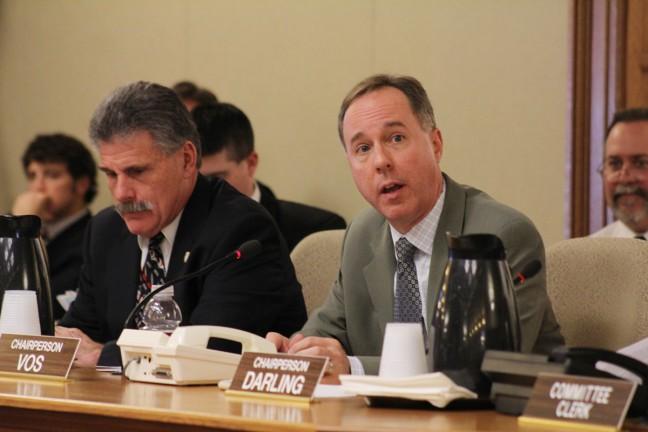Republican-led attacks on DEI offices have been getting progressively worse. Wisconsin Assembly Speaker Robin Vos (R-Rochester) is holding workforce development initiatives over the Universities of Wisconsin until diversity, equity and inclusion programs are cut, according to Wisconsin Public Radio.
In June, Republicans voted to the Universities of Wisconsin budget by $32 million, leaving the system short half a billion dollars during a state budget surplus, according to Wisconsin Public Radio. When this tactic didn’t convince the Universities of Wisconsin to cut its DEI programs, Republicans turned to other methods.
Republicans are currently withholding pay raises for UW employees, despite approving funding in July, according to The Badger Herald. Programs have emerged, however, that may aid in replacing or assisting with the efforts the DEI programs make.
Lenient state labor regulations threaten vulnerable employees
The McNair Scholars Program is a federally funded program designed for low-income students, first-generation students or students from an underrepresented racial or ethnic background who want to pursue a STEM Ph.D., according to the program website.
The program is funded by the U.S. Department of Education TRIO grant. The McNair program prides itself on providing resources and giving students an opportunity to not only enrich their own lives but to give them the opportunity to give back to communities through their work.
According to the program website, the goal is to increase representation of marginalized students in Ph.D. earners. And the McNair Scholars Program works to support these students, who face particular challenges in higher education.
Being part of a lower socioeconomic status comes with significant disadvantages when it comes to landing jobs and navigating higher education. According to Accredited Schools Online, about half of people from high-income families will earn a four-year college degree by the age of 25, compared to just 10% from low-income families.
When low-income students have the opportunity to attend college, it significantly improves their chances of breaking generational barriers to wealth. College graduates have a 53% higher chance of moving from the bottom fifth to the middle fifth of family income, according to Accredited Schools Online.
US Forest Service should cancel irresponsible plan to clear 12,000 acres of Wisconsin forests
And more low-income college students doesn’t only benefit the students, by systems of higher education overall. Lower-income students bring unique perspectives to colleges colleges, enriching the overall educational experience of each campus.
Low-income students also serve as inspiration for their communities. Oftentimes, because first-generation college students have to overcome many barriers to get where they are, that tenacity transfers over to their on-campus habits, according to Avila University. Students who face social barriers are more likely to be highly motivated and are characterized as “change agents,” who help other students and their families progress in life.
Programs like McNair are crucial, but are they enough? Without DEI programs, many students will be left with little resources and support that are tailored to their experiences. Bans on DEI can change curriculum and identity services that are critical to providing marginalized students a safe space to express themselves and be who they are.
Eliminating DEI programs also affects diversity within industries after graduation. Employers in STEM fields that lack equitable representation will struggle to fill growing workforce needs, according to US News.
Diversity on campus also improves campus culture by increasing awareness of different experiences. DEI programs allow more perspectives to be shared which enhances not only the learning process but enriches cultural understanding.
Campus organizations host discussion panel on land acknowledgments
Though programs like McNair are helpful to the students who qualify, the program on its own cannot support the needs of all marginalized students. There is limited money and resources, and the program is designed for a very specific type of applicant.
Since the federally funded McNair program is limited, state-funded DEI programs are also essential. But, due to the politicization of support for marginalized students, people’s livelihoods are being impacted. The salaries of state employees should not be used as a bargaining chip for Vos to push an anti-DEI agenda.
Students need a place to feel safe and heard on campus, and with critical support resources being placed at odds with salaries of UW employees, the needs of marginalized students are trivialized.
Sammie Garrity ([email protected]) is a freshman studying journalism and political science.




















